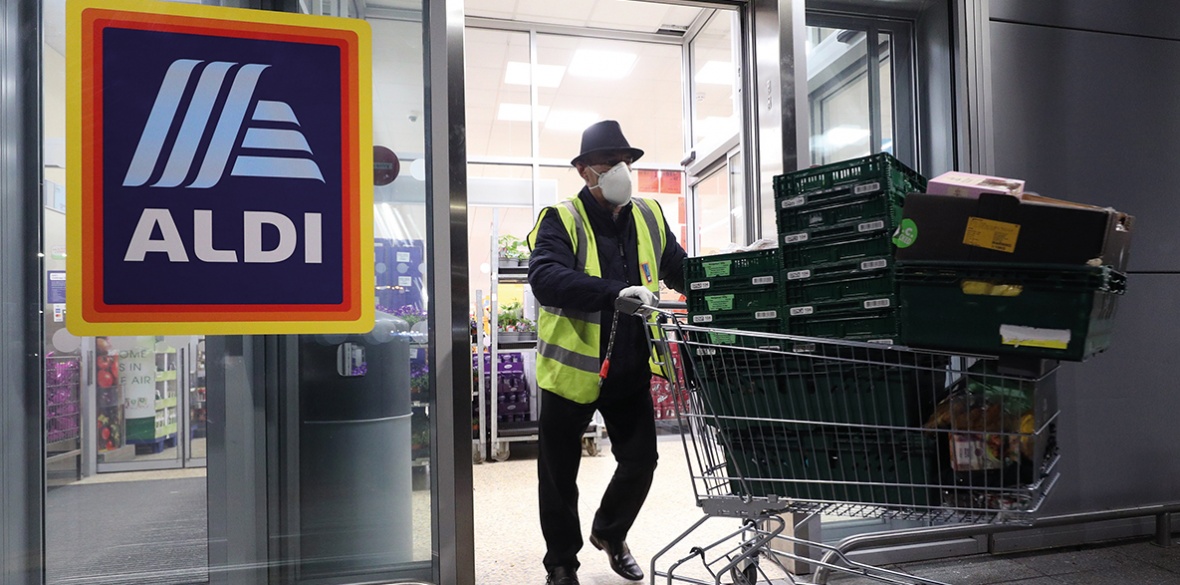This is the last article you can read this month
You can read more article this month
You can read more articles this month
Sorry your limit is up for this month
Reset on:
Please help support the Morning Star by subscribing here
KEY WORKERS were rightly praised for their incredible contributions throughout the coronavirus pandemic. However, their heroic efforts appear to have been quickly forgotten and they must be asking themselves: was it worth it?
Having worked throughout, risking their health and often facing abuse from customers, many key workers are still struggling in low-paid, insecure employment and now face a growing cost-of-living crisis.
Usdaw’s cost-of-living survey of over 6,500 workers clearly demonstrates the deterioration in living standards many working people have experienced, as well as the urgent need for government action.
Wages are now lower in real terms than in 2008 and insecure work remains prevalent. We need a new deal for workers, based on a significant increase in minimum wage rates, an end to exploitative contracts and Statutory Sick Pay for all workers from day one at their normal rate of pay.
The energy price cap rise has pushed many household budgets to the limit. Over 65 per cent of those surveyed are significantly cutting down on heating in order to cope. Shockingly, a quarter will no longer use the heating at all. Over a third plan to cut out other essentials such as food to be able to heat their homes.
As food prices rise, household budgets are being stretched. We found around a third had skipped meals to pay bills. Extreme price increases mean that even spending on food is now being pitted against spending on other essential everyday bills, adding to already stressful situations. Worryingly, food bank usage has more than doubled in the past year.
Inflation is spiking across the board. With fuel prices at record highs, getting to work is more costly. A quarter of respondents said they have missed or been late with rent or mortgage payments. As bills take up an ever-growing proportion of wages little is left over, three-quarters said they didn’t expect to be able to afford a holiday this year.
Shockingly, two thirds of workers have relied on borrowing to pay their everyday bills, with around half of them struggling with repayments. With wage increases being consistently outstripped by high inflation, this looks set to continue. Increasing numbers of workers are now at risk of a cycle of debt.
Working families have been particularly severely affected by additional costs for children such as school uniform, food and social activities.
Many parents reported that they are at financial breaking point and the welfare of their children is suffering. 82 per cent said they felt financially worse off now than they did last year.
More than a quarter of all parents have missed meals in the last year to pay bills, with many saying they have to prioritise their children’s meals over their own.
The cost-of-living crisis is amplified for workers experiencing financial pressures because of discrimination and their position in the labour market, with women, BME and disabled workers having the least resilience.
They have been at the sharp end of a decade of austerity cuts and disproportionately impacted by the pandemic, so are least able to absorb a further economic shock.
Action to mitigate the impact of the crisis must be targeted at those who need it most. Inefficient blanket measures, such as the £200 energy loan, continue to leave the most vulnerable without the support needed and don’t address the expanding wealth and inequality gap.
There must be urgent action to dismantle barriers and support for opportunities for workers at a disadvantage in the labour market to progress.
The freeze on working age benefits has had a significant impact, because the amount of support has dropped in real terms as the cost of living has spiralled.
A staggering 83 per cent of those in receipt of in-work benefits reported that they feel worse off now than last year, with 61 per cent now struggling with debt. These are mainly supermarket workers struggling to afford the basic food they need.
Workers already under serious financial pressure are also considerably less likely to be able to access other basic employment rights, such as taking time off when Statutory Sick Pay is just £99.35 per week.
Those who work part time while caring for children or other family members earning less than £123 per week are not entitled to any sick pay at all. We need better sick pay for all workers, from day one, at average earnings.
The government has so far not delivered anywhere near enough to help workers facing of this cost-of-living crisis.
If they don’t take the action we are calling for, the government will have simply failed to understand the scale of the challenge faced by millions of working households across the country.
Paddy Lillis is general secretary of Usdaw.











